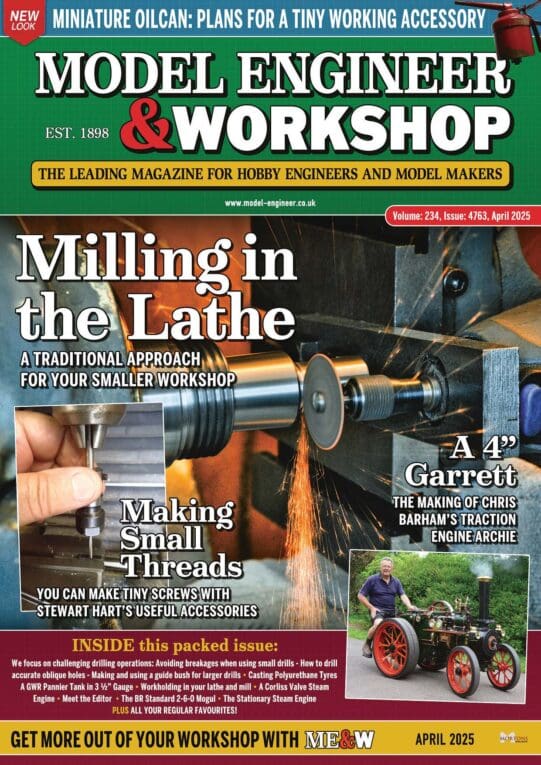Swamp Ash
Swamp Ash
- This topic has 29 replies, 12 voices, and was last updated 30 October 2020 at 21:54 by
 Michael Gilligan.
Michael Gilligan.
- Please log in to reply to this topic. Registering is free and easy using the links on the menu at the top of this page.
Latest Replies
Viewing 25 topics - 1 through 25 (of 25 total)
-
- Topic
- Voices
- Last Post
Viewing 25 topics - 1 through 25 (of 25 total)
Latest Issue
Newsletter Sign-up
Latest Replies
- James Coombes Drawing Error (or mine?)
- Problem getting the right parameters on a VFD
- Morse Key
- Steam pressure using thermistor
- Chester DB10LB Lathe – Not starting
- Supply company catalogues
- Measuring increments on boring head
- Machinery Handbook
- Which type of single phase motors are best for constant use – power hacksaw
- Flattening brass plates




